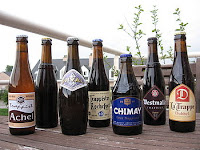After 2,5 h by train from Antwerp I was in Amsterdam. Antwerp has the oldest and the most beautiful train station in Europe, you can get anywhere very fast and easy.
Natives told me Amsterdam is European Las Vegas. So, here comes the famous citation: "What happens in Amsterdam, stays in Amsterdam." The right proof were crazy tourists wearing funny clothes and celebrating freedom in every sense. The smell of weed is all the way through the city and among tourists, businessmen, families, adults and youngsters. No taboos, no hidden desires, no fear on the streets of Amsterdam, easy going atmosphere cowers the main Dam square, more than 40 museums (Van Gog museum, Anna Frank house...), Red Light District, numerous channels with boats, colorful buildings, traffic jam with bicycle riders everywhere...


Also, I visited Cologne, one of the biggest cities in Germany. If you want to travel by car through all Europe and not to pay too much, register on this website
http://www.mitfahrgelegenheit.de/. Simply I found drivers who want to share expenses of the ride and it took us only 2 h and 15 e from Leuven to Cologne. The world becomes a small place and impossible seems achievable when you are in West Europe.
Cologne is university city with students sitting in front of magnificent cathedral Dom and around the big artificial lake, holding barbecues. The coast of Rhine river and Old part of the city were crowded by couples because it was a weekend of gay pride in Cologne. They told me this city welcomes gay people more than others. Compared to my country, which is quite conservative about homosexual marriage and kids adoption, this was completely new reality for me.
Brussels is a big urban city with less natives than people who came from all over the world. You can see Africans, Islamic women, Asians and find their quarters with restaurants and stores. Belgium is one of the top destinations for immigrants and rare place where you can find a well paid job and plan the future. The social system helps everyone and people are very kind.
The Grand Place (Grote Markt) is breath taking, especially during the night because of the light show on buildings. Peeing boy, Botanical Park, Atomium, Belgian chocolate are some of the things you have to see and do.
Gent is a mixture of music and history. It is known by jazz and music festivals. I will mention Gentsee Festeen, a free 10 days long music festival with street art in the very center of the city. Stages with musicians from all over the world and many tourists blocks your view on a beautiful old castles, churches and monuments. The atmosphere on the festival changed my perception of Belgians as people focused on work and only work. They can also party a lot, dance, flirt and drink a lot of bier.
If you want to see different shaped skyscrapers, go to Rotterdam. I had an impression of New York because of numerous English speaking workers (in hostels, bars, shops) and a magnificent view from Erasmus bridge. A great traveler of Europe, Erasmus, was born in Rotterdam and many places and events got the name by him.

Scheveningen is a seaside part of Den Haag in The Netherlands. I also visited Oostende, a city on Belgian coast of North Sea. Both beaches are sandy and huge with kids playing with dragons, paragliders, swimmers, surfers, sailers in the crystal clear water. The amazing fact is that only some meters separate the modern architecture and touristic attractions from the endless sea. Tip: don`t feed the seagulls because of the penalty up to 250 e.
Paris! What can I say about that huge and so beautiful city of very kind and artistic people? It is so bright, looks Mediterranean a bit, young people are alive, friendly and pretty. Simply, I want to go again! The best thing is it is only 3 h by car from Brussels.
Bruges is a Belgian city with the highest number of buildings from the middle ages. It is romantic, bohemian and respectful. There is an English movie called "In Brugge" which presents beauty of the city although the movie is with murders and blood, weird romance and friendship...
































